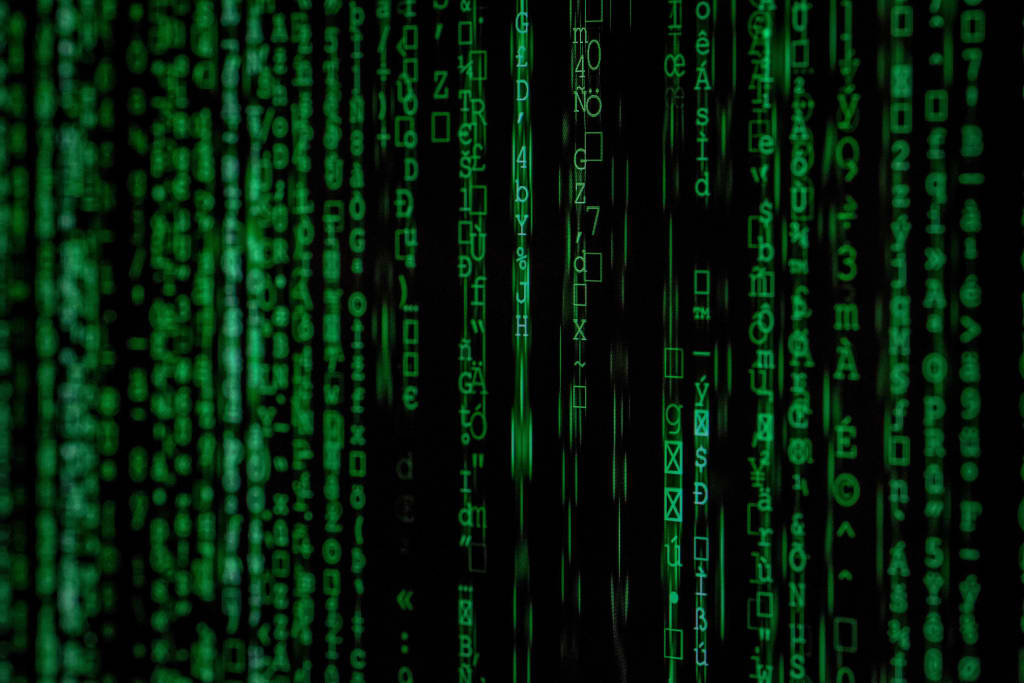The Matrix, The Red Pill and the Future of Ideology
What can the Matrix tell us in answering the question on the future of ideology as science?

When thinking about the Matrix and the Red Pill, I come to question whether ideology is something we can be freed from and if it can be counted as a scientific force, as much an immovable truth in the universe as gravity or light. The question comes to mind of how ideology exists and how can we use it? Can we be free of ideology or are we lifelessly in it, as to be stuck within a never ending Russian Doll; can we escape ideology? And what better place to look than the place which reignited this area of futurism, ideology and science, The Matrix and The Red Pill.
What does the Matrix tell us in answering the question on the future of ideology? And at this point in time, where conflicting political ideologies, doctrines, opinions, are all voraciously competing, so much as to make a parody of Fukuyama’s End of History; it is an important moment to look at the future of ideology.
At first, I contend with an interpretation of the Matrix by the philosopher Žižek, who states that we are permissive and free agents in this false world. In reference to the Matrix, Žižek sees this as being due to our uncontrolled and unknown state of existing in the ‘fluid sack’, and that we can only exist in this world or state due to our submission to such a state i.e. living in this ‘sack’, and that we need to adhere to it, otherwise, we would not be free or alive. Simply put, this concludes that we cannot live without existing in an ideology. To prove this point, as the Agent Smith states later in the Matrix, "people were initially programmed to be happy, but kept waking up, - and dying as a result - whole fields of crops were lost".
People in this programmed world had no agency to suffer. Without this underpinning agency (choice) they couldn't accept this existence, they died in this void, even though it was a happy void, because the human condition knows that a completely happy life is not possible, nor, as we will see later, even preferable. It implies that without the ‘lie’ of an imposed state of agency, without ideology, even one with just the illusion of choice, we will not survive.
We see the acceptance of this permissiveness as an end to chaos, in Žižek’s interpretation of Christopher Nolan's movie The Dark Knight. Žižek writes,
"the gravest implication about The Dark Knight is that it elevates the lie into the principle of society, as if for society to operate at all, there has to be a lie, as if to tell the truth must automatically mean chaos"
This is to say that without the lie of society there is no reality except chaos; as the dying in the ‘fluid sack’ in the happy failed Matrix is the result of just happiness, anyone would, if given an objective choice, rationally choose to live in a ‘lie’; we can render from this that we would always choose an ideological conception of the world with conflicting agency to reside within, for better or worse.
However, and conversely, when Neo discovers this 'lie', that the ideology and reality he exists in is being imposed upon him falsely, he disavows it, meaning ideology without agency is impossible to accept, even if paradoxically this need had already been granted to those in the Matrix just not in the terms Neo now defines as ‘real’. Neo chooses The Red Pill; the discovery of the Matrix is akin to the Wizard of Oz, the man behind the curtain. Once Neo knows life is not what he thought was true, he can’t go back to believing it is.
How do we then resolve this paradox? If both realizing we are in a prearranged reality is repulsive and existing in a happy lie reality is death, then how do we in the Matrix square peg this round hole?
If we look to the philosophers Michel Foucault and Herbert Marcuse for instance, in their perspective, we would say that by taking The Red Pill we lose one ideology but immediately gain another. We go from being in ‘The Matrix’ with its rules and realities into another ideology, with this demystifying, we simply pop a bubble within a bubble; to paraphrase Marcuse’s words, ‘as an airplane removes the spirituality of the sky, it opinions itself to us to liken it to a highway or a place of travel, as opposed to a thing of beauty or a type of god’ - which ideology is then true? Neither is true or false. The point from their side is that they are equal, ideology is constant, even if all perimeters and facts change; we still exist or think in, or are being one with, an ideological state.
In these terms, The Matrix is viewed as a lie and the Red Pill is taken, yet we immediately move into a new world which has its own ideological conceptions i.e humans vs machines. And that ideology itself will, as the one before, be challenged or changed, in this way ideology is akin to Bertrand Russell’s ‘it’s turtles all the way down’. That The Red Pill is like an Internal Affairs Department needing to investigate a Police Department, who in turn need another Internal Affairs team to investigate them and so on and so forth. Therefore the Red Pill in any given situation can’t give liberation, because on one hand that liberation is simply another ‘lie’ formed to prevent chaos, the need to fight the Matrix as in the Žižek form of ideology, or, as in the latter The Red Pill is simply an action to another ideology which is equal to or consequential of the proceeding ideology, which in turn holds in it the seed of the next ideology.
Therefore, in any state or case there simply cannot be an existence of no ideology, the idea of liberation from one thought to another is the same as moving from one prison cell to another. Neo’s repulsion of the lie of the Matrix upon learning the truth may make him view the previous reality as false, but it simply moves him from one ideology to another.
We may subjectively enjoy or entertain one reality or ideology more than another, but this basis whether it be moralistic or heroic, as humans on all sides of conflict often see themselves, is an element that is as much an arbitrary part of the new ideology as the previous; as the Joker is seen showing the lie of society, it in the end means nothing, or as seen by the character wishing to re-enter the matrix once deciding the new ‘real world’, he entered is a far less enjoyable place than the previous.
As human beings, we would as a majority reject this, after all Neo is the hero for doing so, the thought of living in a lie is perverse, even considering Žižek’s notion of the lie as a necessity, or to paraphrase Voltaire, it is okay for a government to lie to its people, as long as it is for their own good. Most people cannot accept this, or a lie outright, and once it is known to be a lie, the jig is up. But, the blurring of lines between lies and truth has been magnified in recent years to such a degree that Flat Earthers exist and conspiracies flourish. It brings us back to question Neo’s decision.
What do we do then if Neo is no longer the hero? Because we don’t know if the Red Pill he is taking is the right decision? And what does this mean for the future of ideology? If we imagine from a Hegelian perspective, we would seem or liken ourselves to be moving through history in a materialistic teleological form, i.e. we are inventing new things and heading somewhere, our material world is forever changing and this can be a force upon our ideological conceptions as a way of improvement, of us seeking a Red Pill, like Neo, to come to a state of new improved ideological reality; take removing the unspeakable cruelty of Nazism from the minds of the people of Germany or the abject abhorrence of slavery from the United States; the Red Pill cures some of the previous ‘lies’, and that these things were objectively good, and it allows people to see a new ‘truth’. But if we are to believe Žižek and Marcuse, both show there cannot be a teleological end to ideology nor an objective truth, there is no ideological fight at hand, because it isn’t a showdown at all, rather a hall of mirrors, as the Flat Earthers and Neo-Nazi’s show, we are more than capable of popping a bubble within a bubble, just to reinflate parts of it, or to flirt between once removed ideological states, for it is two sides of the same coin. Thus, even if we move from one ideology or one reality to another, we are still in the same place, very possibly standing still with the illusion of running forward; what the Buddhist’s describe as the Veil of Maya, the great illusions we all live by.
In either case, how can we in the future use and shape the ideologies to come, if at all we can. Optimistically, if we can, this is a vital tool to provide answers and solutions to contemporary quarrels, Neo taking the Red Pill is an objectively good thing moving him forward to an objective truth; pessimistically, if we can’t, ideology holds no objectivity, but certainly consequences and actions, ones which can easily revert to great travesties; the man reentering the Matrix kills to do so, and the warning signs for our own world are there, the mantra of the Holocaust is ‘Never Forget’ and this is for more reasons than simple remembrance.
We might argue, as some do, that there is empirical fact, objective truth does exist, and this is our saving grace to the confronting fears and dangers of ideology. That ideology is a foolish bedfellow, after all, it is a fact that the earth revolves around the sun not vice versa. Galileo did die for this, even though he was factually right. The earth does indeed revolve around the sun. However, this did little to stop Galileo dying, neither does it preclude the return of a reality where we simply don’t accept this as true, and in that case it doesn’t matter if it is true or not, only if it is perceived to be true by those who observe it in the context of their ideological state. In this sense, the study of ideology is as important a matter of fact as gravity, light, black holes and dark matter.
You might counter with that I will never be able to stop a stone from dropping to the floor; no more than Galileo could convince those who killed him that he was right. You might preclude that in time, the proof is in the pudding and Galileo was accepted, celebrated, but it still took a shift as large as the ideological movement as the enlightenment to absorb this simple observable fact. It was a Big Red Pill. And as Marcuse laments in the capitalist method, we no longer see the beauty of the land, only its worth in dollars. Nothing much was done for decades to stop the worth of ivory being more valuable than the lives of an elephant, despite some few attempts to prevent it. I ask then, what use is the scientific method if no one is around to believe it? Even if it is observable, like the Matrix, people may well choose to reenter, therefore ignoring that scientific ‘truth’.
From this, we can conclude then that we encounter antagonisms in the world due to pockets of ideology that do co-exist, like the characters who know both the existence of the Matrix and the ‘real’ world, the ivory poacher vs environmentalist, but do we decide which is better, more real or just alone? Is it either by a ‘perceived’ self choice or by a predetermined force; in my view both results are the same and the given outcomes and choices lie within one's subjective reality which is a result of the ideological framework they find themselves in. Therefore agency, objectivity and even free will dance merrily within the confines of this showroom. As Morpheus says, ‘the Matrix is all around us’, but really what he means is ideology is all around us, and neither pill will change that.
Does this then mean that determinism is right and free will simply doesn’t exist; we are deadlocked in ideology after ideology, we will always be victim to an ideology of one kind or another. And where we are in it, either by choice or not, has no bearing on the fact that we can’t escape the hall of ideological mirrors. Does anything exist that can change this?
Well, ‘Does God play dice?’ as Einstein put it - if we could know all existing information in the universe in its current form could we predict the next outcome of any given event? This is a matter of much debate, and we don’t know the answer; we do know, if all known forces are placed upon a ball on a roulette wheel, alongside all influences upon it, yes we can precisely know where the ball will land. Would the same be true for the whole universe? Perhaps.
And so to extend this, if then we could, know all thoughts, feelings, beliefs, truths, lies, imaginings, dreams, nightmares, fantasies, of all peoples, could we gain a pedestal of objectivity to see through ideology, to predict the next ideology, or even grasp a conception of reality which is completely unknown to us. A Nirvana as the Buddhist’s frame it; a place beyond ideology and the veil of Maya. It seems we do not know, but from this we can place ideology as much as a force on the human condition as gravity itself.
In conclusion, I have found it hard to come to a greater example of the dubious nature of our own ideological reality than this thought experiment from the philosopher Alan Watts:
“Imagine as if you were to dream, a dream where you could do anything for, say 75 years, then wake up, and whilst you were dreaming you would have complete control of your experience, and knowing you would wake up afterwards, what would you do? You might choose a life of leisure and luxury, live grandiose, with banquets, gardens, and lovers, but after a few months of this you would grow listless, bored, want for something more exciting, you may want thrilling adventures, to battle dragons, save queens and fight dangers. After all you knew it wouldn’t matter because you would wake up. Some time after this you would want to remove the knowledge of you waking up altogether, you would grow tired of the lack of thrill in these adventures. You would want to add in some anxiety, and danger to your life, and thus you would want to forget that it was even a dream at all, you would want to feel it to all be real. After all, you know you will wake up at the end. Think about how this would play out in eternity. While, eventually, you would end up where you are now, living the life you are living. How do you not know this to be the case?”
At this moment, across the globe, we are captive to opposing ideologies as much as the child lost in the hall of mirrors. A balm to this would be more intrigue into Watt’s thought of reality itself, to our own ideology and to what Red Pill we have taken ourselves. A future where we ask these questions is a far brighter one I suppose, than one where we don’t; for sliding into deadly ideologies of the past is but to look in a different mirror.
Yet we may never know the answer if we can truly escape ideology, and that is okay, the point is to ask questions of the ideology we reside in, for the closest true answer I can muster for now is that put by the Italian physicist and philosopher Carlo Rovelli, “we are too complex a being to even explain ourselves to ourselves”.
About the Creator
Josh Clements
Trying to write when my health allows. Fatal Bus Crash Survivor. Spinal Disability. ADHD. PTSD.
Scribbling with a tear and a smile 🥲
Twitter: @JoshClements89






Comments
There are no comments for this story
Be the first to respond and start the conversation.